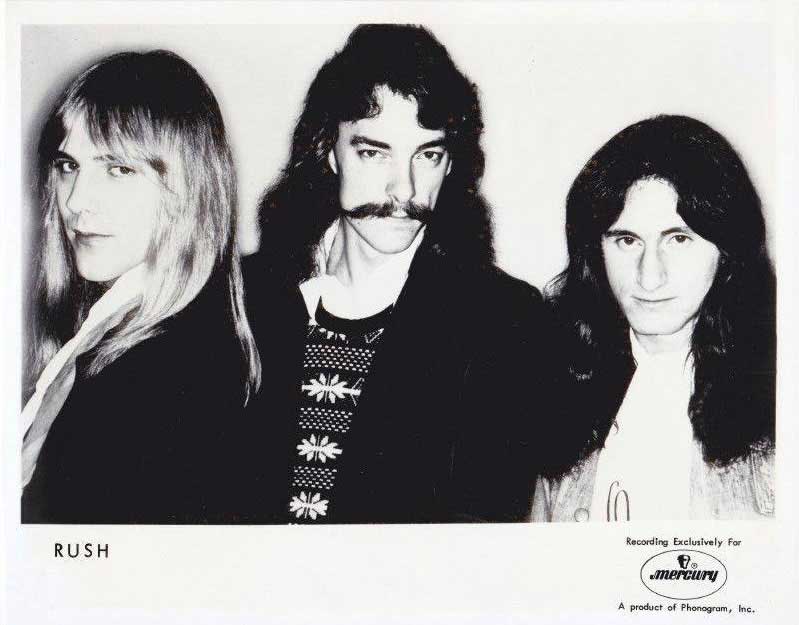Rush Rushes Into U.S. Prominence
By Starr Arning, Billboard, August 28, 1976, transcribed by pwrwindows

SAN ANTONIO - "Once you break in the U.S., you've broken everywhere." With this as the objective, the Canadian band Rush has spent the last two years pouring all its energy and musical ingenuity into busting the competitive U.S. market open - no easy task, especially in the glutted area of hard rock. The fact that it's succeeding is a good indication that there's more to this band than just heavy metal guitar riffs.
Components of the youthful trio are Alex Lifeson, lead guitar, and Geddy Lee on bass and lead vocals. Neil Peart joined the band on drums just six days before its first U.S. tour.
After producing and releasing a first album on its own, Rush signed to American Talent International booking agency which sent a copy of the LP to Mercury Records. Twenty-four hours later, Rush was signed to Mercury, resulting in the group being able to get its first U.S. tour, opening for Uriah Heep.
The band set out on the road, flying the entire first tour. However, it soon became obvious that this mode of travel would not be economically feasible due to Rush's extensive tour schedule.
Lee explains, "If a band comes over from England to do a six-week tour, it can afford to fly. But we're on the road for four months at a time - four months worth of flying is a lot. Mostly, we get sick of flying anyway, because we're working on someone else's schedule.
"Under the best conditions," says Peart, "we'd rather drive than fly. If we get the transportation we want, I think, we'll continue driving. We can relax and it offers a base of operations."
After spending 10 months a year on the road supporting its albums for the last two years, the members of Rush have finally begun to see results of their labor with the comparative success of their latest album, 2112, a futuristic concept LP.
This they attribute to the exposure they've gained from road work. good timing in the release of the album, and strong support from Mercury.
It's the secondary markets that offer Rush the opportunity to headline where the band feels the impact of the television tapings it has done. Peart says, "I think the tapings helped us a lot. There's a lot of smaller places that are important markets, but, being small, about the only thing they get there is tv. Don Kirshner's show on Friday is a big Event. Then, when you come to town, they remember that they've seen you on tv and they go right down and see your concert."
As the future offers Rush more opportunities to headline, supported by its forthcoming double live album, the group plans to showcase its acoustic numbers. Asked why the band has omitted these from its concert repertoire, Peart explains, "When we're headlining a show and the audience is definitely there to see us, then we can start doing acoustic numbers and be able to get away with putting a lighter part in the middle of the show.
Adds Lee: "I think we've got to prove to our audience first that we're serious. Once they accept that, then we can sit down and try to put across a different style to them. Otherwise, they're not going to stand for it."